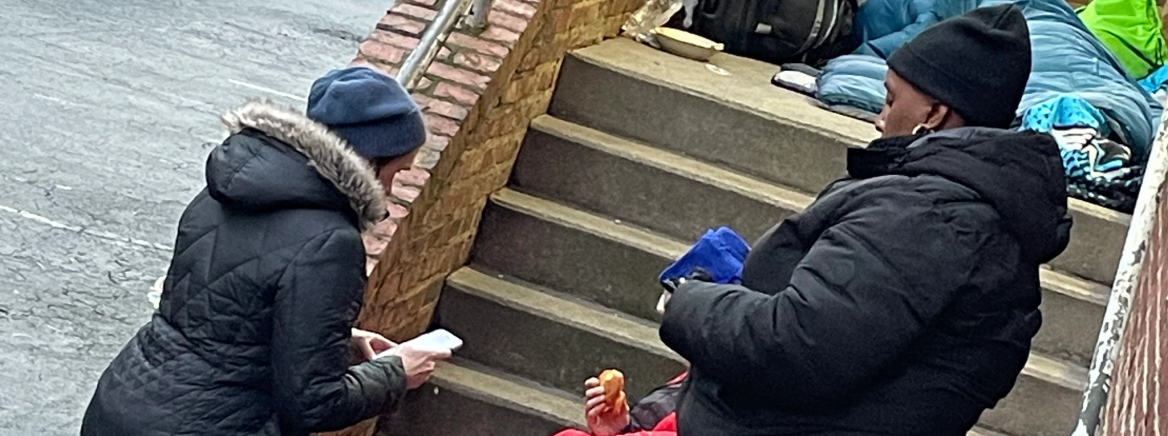2,784 Neighbors in Need: Mecklenburg County Releases Housing and Homelessness Report

Mecklenburg County Community Support Services has released the 2024 State of Housing Instability and Homelessness (SoHIH) Report.
The annual report combines local, regional, and national data across the housing continuum, serving as the foundation from which Charlotte-Mecklenburg can make informed decisions on the allocation of resources and development of systems of care. The report consists of three main sections:
- Homelessness: Individuals in shelters and unsheltered
- Housing Instability: Individuals living doubled up or in substandard housing, and those who are housing cost-burdened
- Stably Housed: Individuals in permanent and affordable housing
The 2024 report presents data on the demand side of the housing continuum, from housing instability to homelessness, and the supply side, which includes all types of permanent, affordable housing. The report covers aspects such as cost-burden, evictions, Point-in-Time Count, housing inventory, rental gaps, Housing Trust Fund, and system performance metrics. New data this year includes information on substandard housing and survey data from the first ever Detention Center Point-in-Time Count.
What We Know:
- Low-cost rentals are disappearing. Low-cost housing for low-income households now accounts for 8% of the total housing stock, down from 45% in 2011. There is a 27,693-unit gap in rental units affordable for extremely low-income households who are at or below 30% of Area Median Income in Charlotte-Mecklenburg.
- Low- and moderate-income households are struggling to afford rent and keep their housing. A lack of affordable housing and a growing rent-to-income gap contribute to the number of rental households in Mecklenburg County that are housing cost burdened. Sixty-one percent of renters earning less than $75,000 per year are cost burdened.
- Evictions continue to increase. Sixty-five percent of eviction cases filed in FY24 were granted in full or part, a 5% increase from FY23. Eviction filings increased 37% in the past year, resulting in an additional 13,000 Mecklenburg households at-risk of losing their homes and/or acquiring an eviction record.
- The number of people experiencing homelessness continues to increase. As of June 2024, there were 2,784 people in Mecklenburg County actively experiencing homelessness, a 3% increase (from 2,704 people) from June 2023.
- The number of people experiencing unsheltered homelessness has increased. According to 2024 Point-in-Time count data, there were 384 people experiencing unsheltered homelessness in Mecklenburg County; a 33% increase since the 2023 PIT (288 people).
- The average length of time people stay in emergency shelter has increased while the median length of time has decreased. The average length of time that people spent in emergency shelter and safe haven increased by seven days from FY22 to FY23. The median length of time in emergency shelter and safe haven increased by seven days from FY22 to FY23 but the median number of days in shelter has decreased 19% between FY19 and FY23.This suggests the system can facilitate rapid exit from homelessness but still has some long-term shelter stayers.
Why it Matters
The 2024 State of Housing Instability and Homelessness Report provides a single, dedicated compilation of the latest data on housing instability and homelessness pertaining to Charlotte-Mecklenburg. This resource is available to anyone who is working to address housing instability and homelessness in Charlotte-Mecklenburg and beyond.
Addressing housing instability and homelessness typically requires a multifaceted approach that combines affordable housing initiatives, support services, mental health and addiction treatment, and employment opportunities, along with efforts to reduce discrimination and enhance tenant protections. As the community continues its mission and work through the Charlotte-Mecklenburg Continuum of Care and the A Home for All initiative to make homelessness rare, brief, and non-recurring, progress in these areas is imperative and possible.
The report and corresponding material can be found on the Charlotte-Mecklenburg Housing & Homelessness Dashboard. It is compiled and released by Mecklenburg County Community Support Services/Housing Innovation and Stabilization Services.
How to Help
Residents can help in several ways, especially before and during the annual Point in Time Count on Jan. 23.
- Donate: Residents can donate items to help people sleeping outside until housing is secured. Sleeping bags are especially needed this year. Access the wish list.
- Raise Awareness: Residents can share information with their friends, family, and networks about housing and homelessness using the #EverybodyCountsCLT hashtag.
- Become involved with the Charlotte-Mecklenburg Continuum of Care

